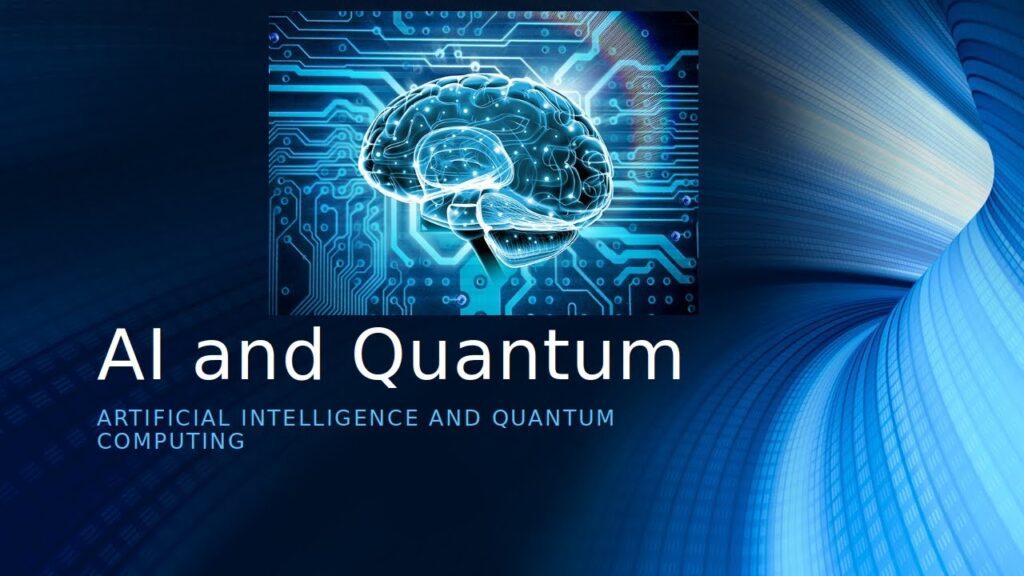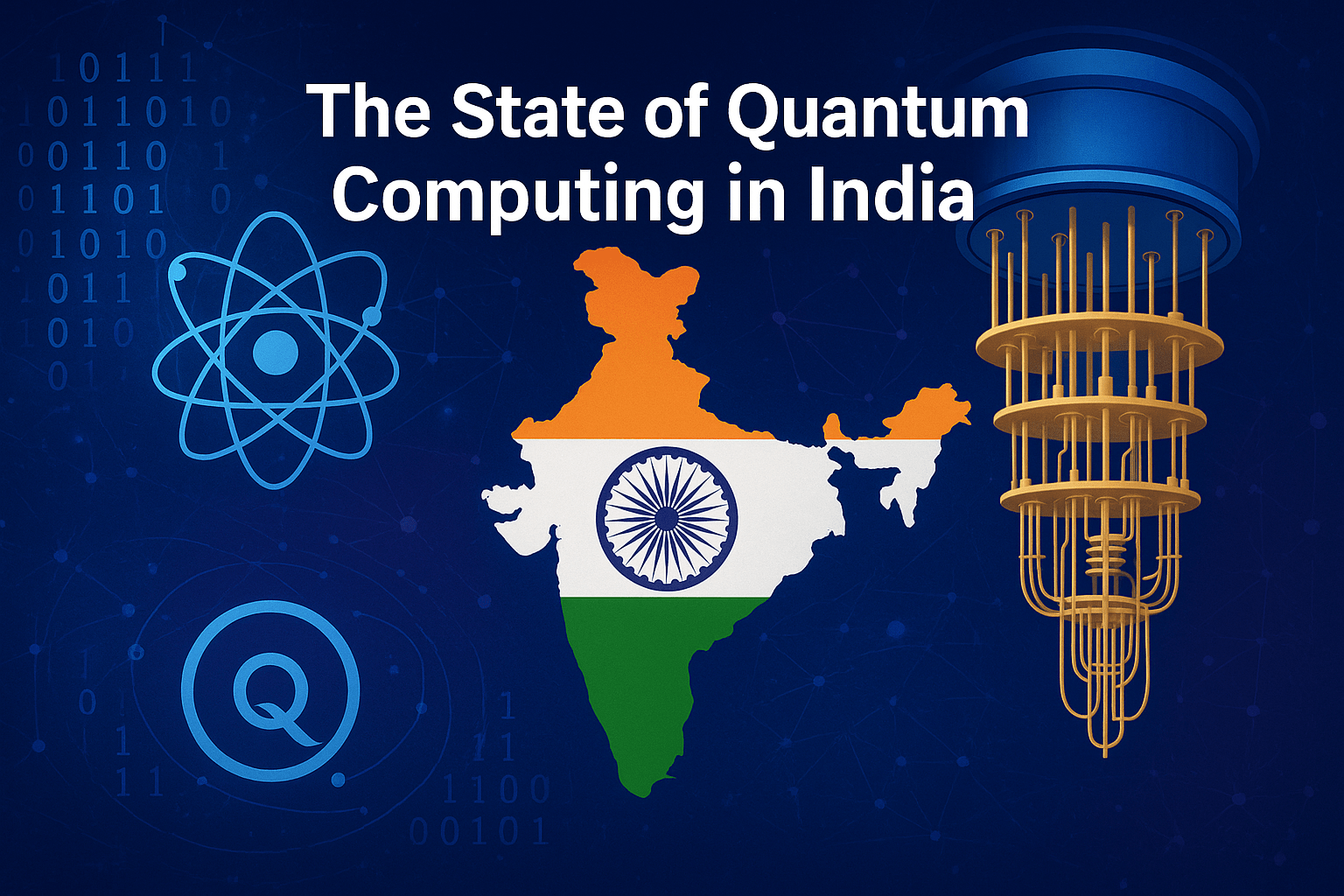Table of Contents
In today’s fast-paced technological landscape, the fusion of quantum computing and artificial intelligence (AI) is creating ripples of excitement and anticipation. As we delve into the intricacies of these cutting-edge fields, it becomes apparent that the synergy between quantum computing and AI has the potential to reshape the future of computation and problem-solving.
Brief Overview of Quantum Computing

Quantum computing is a revolutionary field in computer science that leverages the principles of quantum mechanics to perform computations. At its core are quantum bits, or qubits, which differ from classical bits in their ability to exist in multiple states simultaneously. This unique property, known as superposition, allows quantum computers to process vast amounts of information at unprecedented speeds.
Entanglement is another fundamental concept in quantum computing, where the state of one qubit is directly connected to the state of another, regardless of the physical distance between them. This phenomenon enables quantum computers to achieve parallelism, processing multiple calculations simultaneously and exponentially expanding computational possibilities.
Unlike classical computers that use binary code (0s and 1s), quantum computers operate on quantum bits, opening up new avenues for solving complex problems. Quantum computing holds immense promise for revolutionizing various industries, from accelerating drug discovery through precise molecular simulations to optimizing logistical challenges and enhancing machine learning algorithms.
As quantum computing continues to advance, its potential to transform the landscape of computation and problem-solving is becoming increasingly evident, paving the way for a new era in technology.
Rise of Artificial Intelligence (AI)

The rise of Artificial Intelligence (AI) marks a transformative epoch in the realm of technology. AI refers to the development of computer systems capable of performing tasks that typically require human intelligence. This encompasses a wide array of functions, including problem-solving, learning, language understanding, and visual perception.
The journey of AI began with the aspiration to create machines that could mimic human cognitive functions. Early AI systems were rule-based and relied heavily on explicit programming. However, the contemporary surge in AI is attributed to advancements in machine learning, a subset of AI that emphasizes the ability of systems to learn and improve from experience without being explicitly programmed.
Machine learning algorithms, particularly those involving neural networks, have propelled AI into new frontiers. These algorithms can analyze vast amounts of data, discern patterns, and make predictions or decisions, mirroring human cognitive processes. This capability has found applications across diverse sectors, from healthcare and finance to autonomous vehicles and virtual assistants.
The rise of AI is characterized by the exponential growth of data and computational power, enabling machines to handle complex tasks and generate insights at speeds previously unimaginable. As AI technologies mature, they become integral components of our daily lives, influencing how we work, communicate, and interact with the world.
The advent of AI has sparked discussions about its societal impact, ethical considerations, and the potential for both positive and negative outcomes. While AI presents opportunities for innovation and efficiency, it also raises concerns about job displacement, bias in algorithms, and the need for responsible development.
In essence, the rise of AI represents a paradigm shift in the way we approach technology. It stands as a testament to humanity’s ongoing quest for creating intelligent machines that can augment our capabilities, solve complex problems, and contribute to the evolution of societies worldwide. The trajectory of AI’s ascent is one of continuous exploration, innovation, and the unfolding potential to redefine the future of human-machine collaboration.
Understanding Quantum Computing
Basics of Quantum Bits (Qubits)
To comprehend the synergy between quantum computing and AI, one must first grasp the fundamentals of qubits. These quantum counterparts to classical bits leverage unique properties, allowing them to exist in multiple states simultaneously. This quantum parallelism forms the foundation for quantum computing’s remarkable capabilities.
Quantum Superposition and Entanglement
The concepts of superposition and entanglement enable qubits to operate in a state of flux, exponentially expanding the computational possibilities. Superposition allows qubits to exist in a multitude of states simultaneously, while entanglement ensures that the state of one qubit is directly tied to the state of another.
Quantum Parallelism and Its Implications
Quantum parallelism enables quantum computers to process vast amounts of information simultaneously. This has profound implications for AI applications, where the ability to handle complex calculations in parallel can significantly enhance performance and efficiency.
Quantum Computing’s Impact on AI
Speed and Efficiency Improvements
One of the most anticipated impacts of quantum computing on AI is the drastic improvement in processing speed. Tasks that would take classical computers years to complete could be executed in a fraction of the time with quantum computers, propelling AI applications to new heights of efficiency.
Solving Complex Problems
Quantum computers excel at solving complex problems that are practically insurmountable for classical computers. This includes optimization problems, cryptography, and simulations crucial for AI development, offering a quantum leap in computational capabilities.
Machine Learning Advancements
The marriage of quantum computing and machine learning is particularly promising. Quantum algorithms can revolutionize machine learning processes, enabling faster and more accurate model training, thereby enhancing the capabilities of AI systems.
Challenges and Limitations
Quantum Decoherence
Despite the promises, quantum computers face challenges like decoherence, where the delicate quantum states become susceptible to external influences, leading to errors in computations. Overcoming this challenge is crucial for the seamless integration of quantum computing into AI applications.
Error Correction in Quantum Systems
Ensuring the accuracy of quantum computations demands sophisticated error correction mechanisms. Developing robust error correction techniques is imperative to harness the full potential of quantum computing in AI.
Integration Challenges with Existing AI Infrastructure
Integrating quantum computing with existing AI infrastructure poses technical and logistical challenges. Achieving compatibility and synergy between classical and quantum systems requires strategic planning and innovative solutions.
Real-world Applications
Drug Discovery and Molecular Simulations
The fusion of quantum computing and AI holds great promise in the field of drug discovery. Quantum computers can simulate molecular interactions with unprecedented precision, accelerating the drug development process and potentially unlocking new treatments.
Optimization Problems in Logistics
Quantum algorithms shine in solving optimization problems, a key component in logistics and supply chain management. AI applications in these domains stand to benefit significantly from the enhanced computational power offered by quantum systems.
Enhanced Machine Learning Algorithms
Quantum-enhanced machine learning algorithms can revolutionize data analysis. From pattern recognition to data clustering, the synergy between quantum computing and AI opens avenues for developing more sophisticated and efficient machine learning models.
Quantum AI Ethics

Security Concerns
As quantum computing progresses, concerns about its impact on cybersecurity and encryption arise. Quantum computers have the potential to break current encryption methods, necessitating the development of quantum-resistant security protocols to safeguard AI applications.
Responsible AI Development
The marriage of quantum computing and AI introduces ethical considerations. Responsible AI development practices must be implemented to ensure that the immense power of quantum computing is wielded ethically and without unintended consequences.
Ethical Considerations in Quantum AI Research
Quantum AI research should prioritize transparency and ethical standards. As quantum computing becomes more accessible, guidelines and frameworks must be established to govern the ethical use of quantum-enhanced AI technologies.
VII. Future Prospects
Continued Research and Development
The journey of quantum computing and AI is far from over. Ongoing research and development efforts will push the boundaries of what is possible, uncovering new applications and refining existing technologies.
Potential Breakthroughs in Quantum AI
Anticipating potential breakthroughs in quantum AI is an exciting prospect. From overcoming current limitations to discovering entirely new computational paradigms, the future holds promise for transformative developments.
Evolving Landscape of Technology
As quantum computing and AI evolve, the technological landscape will transform. Industries, research, and daily life will be shaped by the synergies between these two groundbreaking fields, ushering in an era of unprecedented possibilities.
new era in computing. The speed, efficiency, and problem-solving capabilities offered by quantum computing have the potential to revolutionize AI applications across various domains. From speeding up drug discovery to optimizing logistics and enhancing machine learning algorithms, the possibilities are vast and exciting.
The Symbiotic Relationship Between Quantum Computing and AI
The relationship between quantum computing and AI is symbiotic. Quantum computing provides the computational power needed to tackle complex problems, while AI applications, in turn, benefit from the speed and efficiency gains offered by quantum systems. This symbiosis opens doors to unprecedented advancements and discoveries.
Get Ready for the Quantum AI Revolution
As we look to the future, the synergy between quantum computing and AI paints a compelling picture of innovation and progress. The collaboration between these two fields holds the key to solving some of the most pressing challenges in science, technology, and society.
FAQs About Quantum Computing and AI
How will quantum computing affect AI brainly?
These quantum computers’ qubits are enabling a revolutionary transformation in data samples and interpreting business difficulties. By finding new patterns and flaws more quickly, it is hurting the intelligent functionality of AI models.
What is the difference between artificial intelligence and quantum computing?
Well, AI is real and solving thousands of real-world problems and it can run on a common PC. Quantum computing solves one or two problems, with little practical use, and costs a fortune to run.
What are the ethical considerations of quantum AI development?
Ethical considerations in quantum AI development include issues related to security, responsible use, and transparency. As quantum computing has the potential to disrupt traditional security measures, ethical guidelines are crucial to ensure responsible development.
Can quantum computing solve problems that classical computers cannot in the field of AI?
Yes, quantum computing excels at solving complex problems, such as optimization tasks and simulations, that classical computers struggle with. This capability opens up new avenues for AI applications in various domains.
How can quantum computing enhance machine learning algorithms?
Quantum computing can accelerate machine learning processes by performing complex calculations in parallel. This speedup allows for faster model training and more efficient data analysis, contributing to advancements in AI.



3 thoughts on “How Will Quantum Computing Affect Artificial Intelligence Applications”